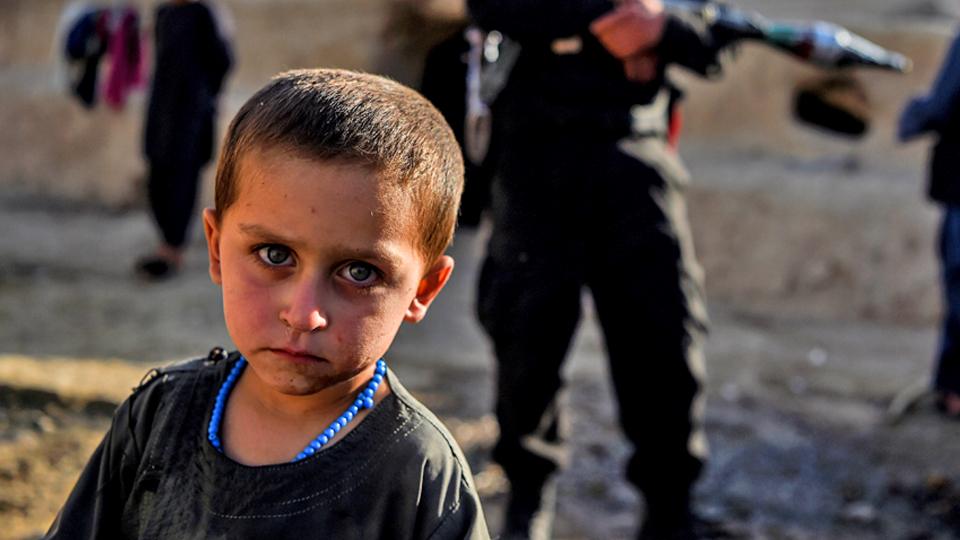Afghanistan, the Taliban and education for girls: BBC expert Jeremy Bowen answers your questions
- Published
- comments
What will happen to education for girls in Afghanistan?
Following the Taliban takeover of Afghanistan, lots of people have been concerned about what this could mean for people living there - with one of the big questions being how education for girls in the country will be affected.
The Taliban are an extreme Islamic group, known for severe punishments and strict rules.
When the Taliban ruled the country in the past - from 1996 to 2001 - they were criticised for the harsh way they treated people, particularly women and girls.
In the last week, the group have stopped girls from going to secondary school, with only boys and male teachers allowed back into classrooms.
Jenny spoke to BBC expert, Jeremy Bowen, who is in the capital city Kabul, to find out more.
What's happening now?
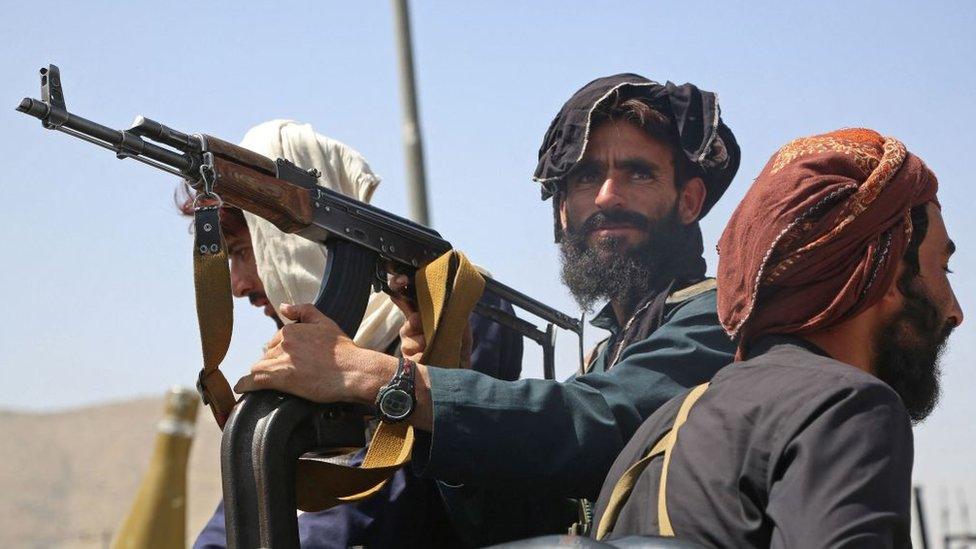
The Taliban took full control of Afghanistan following the withdrawal of US troops
When the Taliban controlled the country in the 1990s, women and girls' rights were restricted - girls couldn't go to school and women weren't allowed to work.
Recently the Taliban have excluded girls from Afghan secondary schools, whilst boys have still been allowed to go. The Taliban say they are working to reach a decision on the matter.
Jeremy Bowen is a BBC correspondent who is in Kabul, the capital of Afghanistan. He spoke to Jenny to explain more about what's happening there at the moment:
"The Taliban, the new rulers of Afghanistan, are saying they are making some arrangements, so that girls will go back to schools, to secondary schools, but they need to work on the details - things like school buses."
He added: "One thing that is interesting is that schools here break for four months over the winter, because the weather is bad - there is snow and people can't get to school.
"So some people are saying wait until after the winter break. It will all be sorted out because Afghanistan as a country has changed.
"Plus they (the Taliban) want to interact with the West, which is, of course as it should be, in favour of education of everybody - boys and girls."
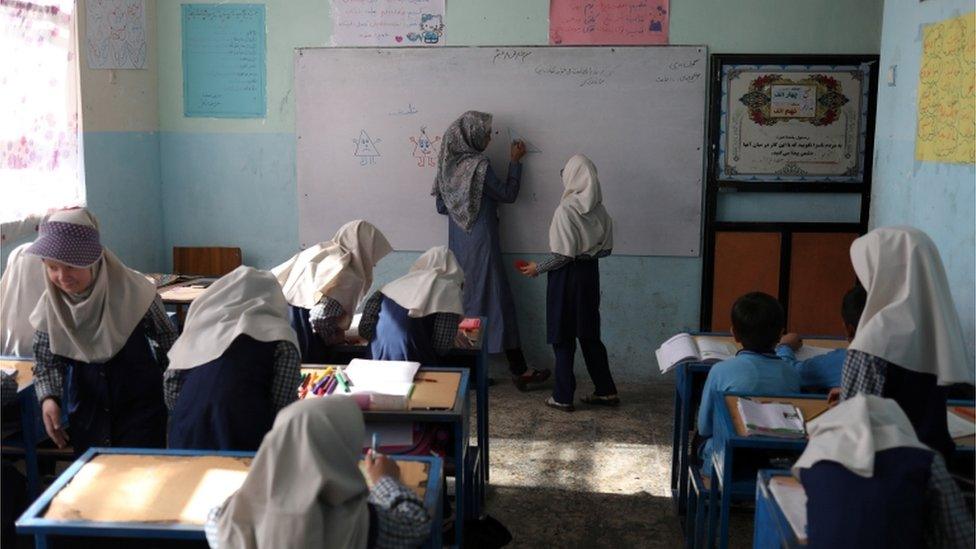
Girls have been stopped from attending secondary school in Afghanistan. Secondary schools are usually for students aged between 13 and 18, and most are segregated
However, Jeremy said some people disagree and think the Taliban are set on making girls stay at home.
Jeremy told Jenny: "It's not really about religion so much as it is custom. Where the Taliban come from in southern Afghanistan, it's quite rural, it's quite old fashioned, conservative.
"I've been talking to a lot of Afghans here and a lot of them are saying they believe the Taliban have changed, but they may not have changed very much and for them keeping women at home is a pretty fundamental belief.
"We have to wait, they say they're going to do it, so let's see if they keep their promises - they've broken promises in the past."
What do young girls in Afghanistan think about being excluded?
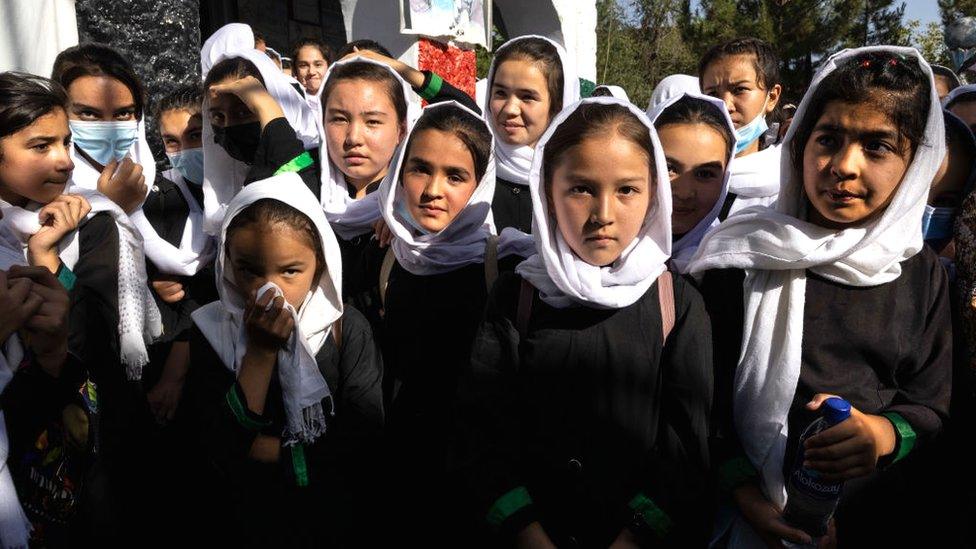
Jeremy spoke to a teenager who was at secondary school who said she was very sad: "She has ambitions and hopes and her family are going to head to Pakistan."
Some people in Afghanistan want to leave the country to escape the rule of the Taliban. Many Afghan refugees flee to the neighbouring countries of Iran and Pakistan.
Jeremy said: "It is sad to see that people are leaving the country because these are people who had a glimpse of a better life, and they know that to get a better life, they need to be educated."
Jenny asked Jeremy if more children will be leaving the country, he said: "There will be some leaving, but not in vast amounts because most people are very poor.
"Most people don't know if they are going to have enough money to buy bread this evening, certainly not a plane ticket to get out and start a new life somewhere else.
"So, no I think for most Afghans they are going to have to try and find the best sort of life they can, which is something with wars going through centuries, they've always had to try to do."
- Published17 August 2021
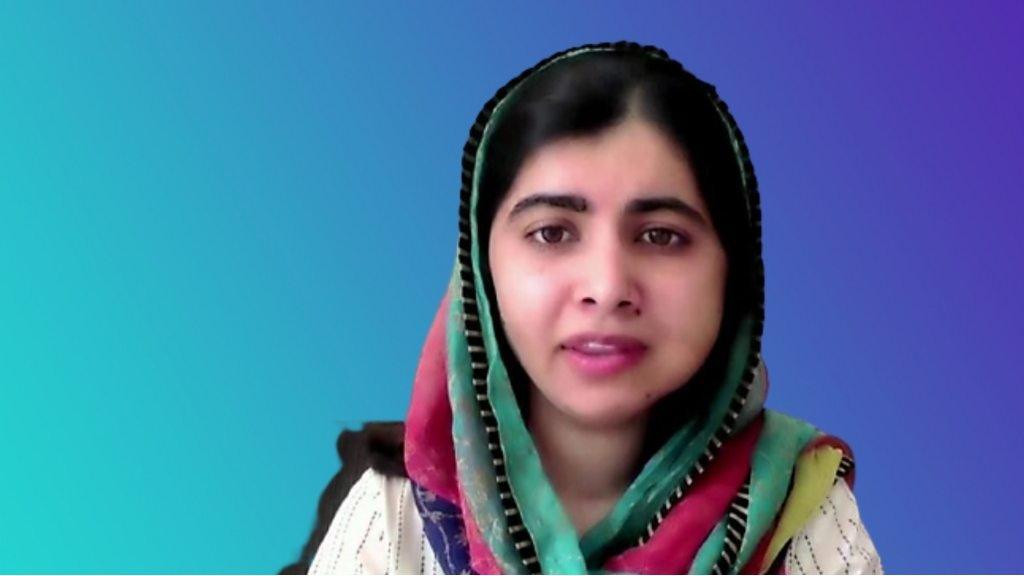
- Published18 August 2021

- Published17 August 2021
